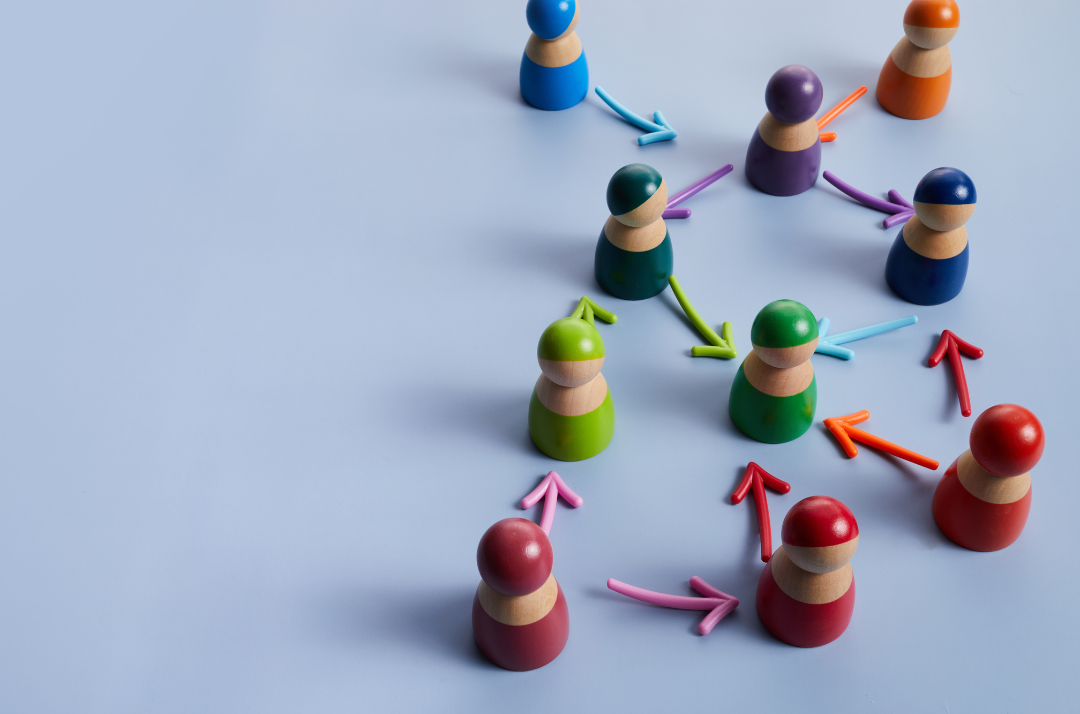Join Debbie Draybi, Eddie Reaiche, Lisa Makhlouf, and Judy Saba in this final episode of their series on mental health. They delve into the power of community connection, the importance of shared experiences, and the value of diverse perspectives. Explore how our individual journeys shape our collective healing and learn strategies for fostering meaningful relationships within the community. Discover the balance between celebrating our unique identities and building a supportive, inclusive environment.
Key Takeaways
- The Power of Connection: Emphasising the strength and importance of coming together as a community to support and nurture mental health.
- Embracing Diversity: Highlighting the necessity of including various perspectives and experiences in building effective support systems and services.
- Intentional Conversations: Stressing the value of genuine, deep conversations and connections over superficial fixes or immediate solutions.
The Power of Connection in Community
Debbie Draybi emphasises the paramount importance of connection within our community. She passionately states, “The power of coming together and starting conversations is immense. It opens us up to rethink things we might be stuck with.” This concept of connection does not merely imply gathering but cultivating deeper relationships and comfort zones for those involved.
The episode treats connection not as a trivial social interaction but as a sanctuary where individuals can reflect, share, and support each other in their struggles. Lisa Makhlouf underscores this by saying, “When we come to these workshops and commit to our own healing, it’s another way of being generous to each other.” This generosity speaks to the Maronite community’s innate hospitality, providing a safe space for others to feel heard and understood.
Eddie Reaiche profoundly adds, “We’re creating an opportunity where people can come somewhere, where they’re not judged.” This welcoming environment is pivotal in helping individuals navigate their mental struggles without fear. Judy Saba backs this up with historical anecdotes, recounting how her mother found solace in a non-Arabic-speaking neighbor through shared experiences rather than words.
Embracing Diversity for Robust Community Support
Another key theme from the discussion is the importance of embracing diversity of experiences and perspectives to build a comprehensive support system. Debbie emphasises, “We need diversity of perspective, diversity of life experience and skills to come together and build something that reflects all our needs.” The variety in experiences enriches the solutions offered and ensures they resonate with more people.
Judy expands on this by highlighting that different generations and backgrounds can bring unique insights and solutions. She remarks, “We need to look backwards in order to move forward.” Judy recalls the early days of community service, which were shaped by contributions from non-professionals. These community members, though not formally trained, offered valuable input, teaching professionals what truly mattered to the collective.
Lisa also contributes that embracing diversity goes beyond professional integration, stressing the importance of breaking personal biases and assumptions. She passionately states, “Most people don’t see things as they are; they see things as they are.” This understanding can help create more inclusive and effective support systems. By inviting various experiences, the community will have a broader and more empathetic view, leading to more tailored and practical solutions for everyone involved.
Building Authentic Connections
Engaging in deep, intentional conversations emerges as a crucial method for fostering real connections and providing meaningful support. Debbie observes, “There is a distinction between looking for information and sharing an experience.” While information can be obtained online or from experts, the invaluable support comes from shared, empathetic experiences and open conversations.
Lisa emphasizes this point by urging people to meet and speak genuinely. She explains that the initial step can be as simple as meeting someone for coffee, stating, “It can be really simple or calling… it doesn’t have to be really fancy.” Authentic connections are made in these simple, yet profoundly affecting interactions, where people feel seen and heard without judgment or haste.
Eddie highlights the importance of understanding the entire person, noting, “Nothing really defines us because we’re a person of multiple parts, not just one part.” This holistic approach to individual identity and interaction is essential for fostering genuine connections that support mental well-being. Judy adds that having awareness of the assumptions we bring to conversations can greatly impact the effectiveness of these interactions, saying “It’s an awareness of what I bring, knowledge about that person from their perspective, and the skills to be able to tell them what we can, what we can’t, and what we will and what we won’t do.”
Engaging in intentional, empathetic conversations within a diverse, connected community offers profound opportunities to support and enhance each other’s mental well-being. Debbie’s heartfelt retrospective on her experiences reveals the strengths of cross-generational and cross-cultural connections. “Mum had the most connection with someone who didn’t even speak her language,” Judy narrates, encapsulating the magic that occurs when people genuinely connect.
The true essence of community lies in its ability to build, nurture, and heal collectively. “Healed people heal others,” Lisa wisely affirms, echoing the sentiment that we all carry the responsibility of fostering an environment where everyone’s voice and experience can echo meaningfully. Emphasising that everyone has unique strengths and insights to offer, integrating these insights into a broader community framework ensures that support services truly reflect the needs and experiences of all members.
Ultimately, the podcast reaffirms that connection, diversity, and intentionality are not just lofty ideals but actionable concepts that the Maronite community can continuously strive to embody, nurturing a sanctuary where everyone feels safe, heard, and valued.



Leave A Comment